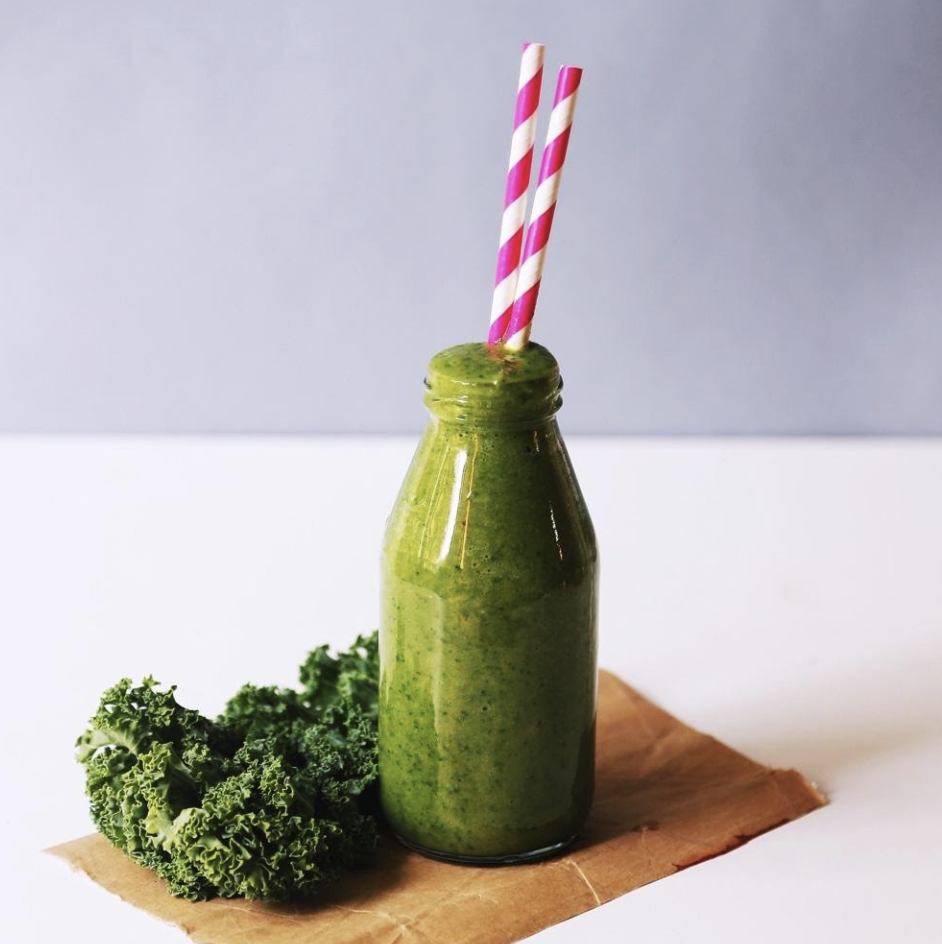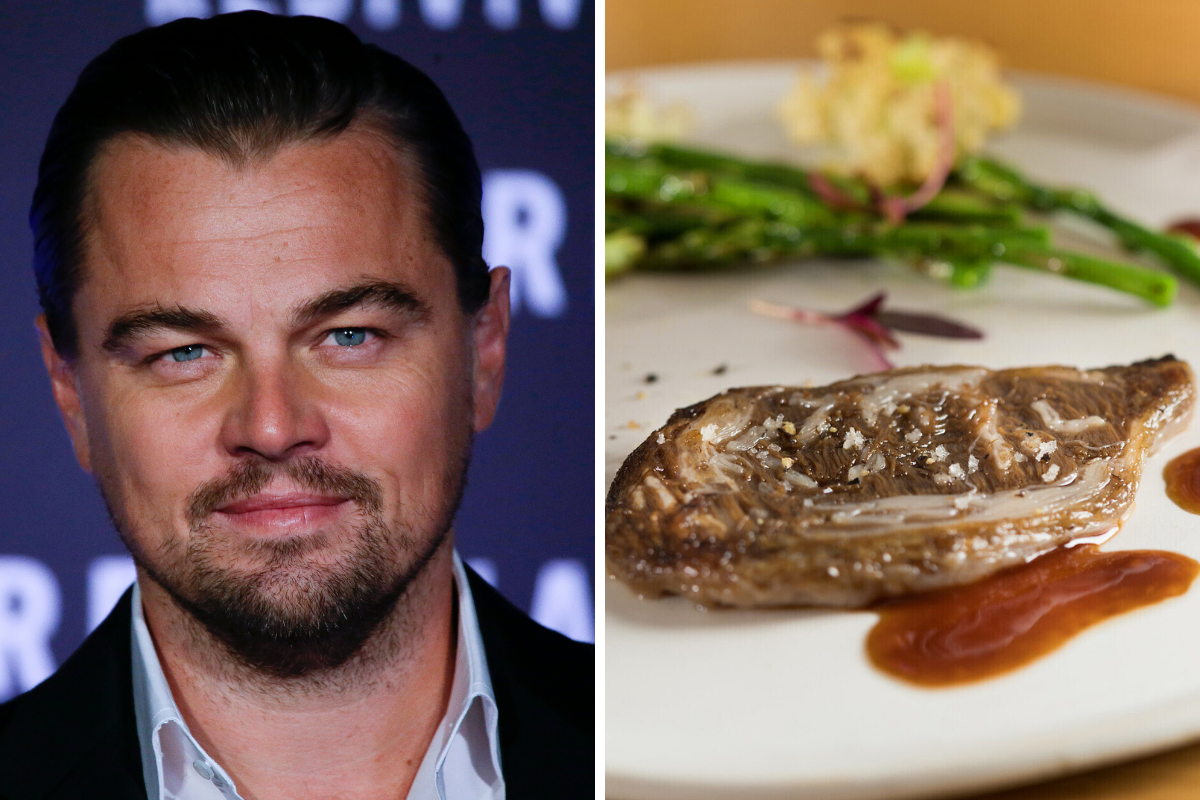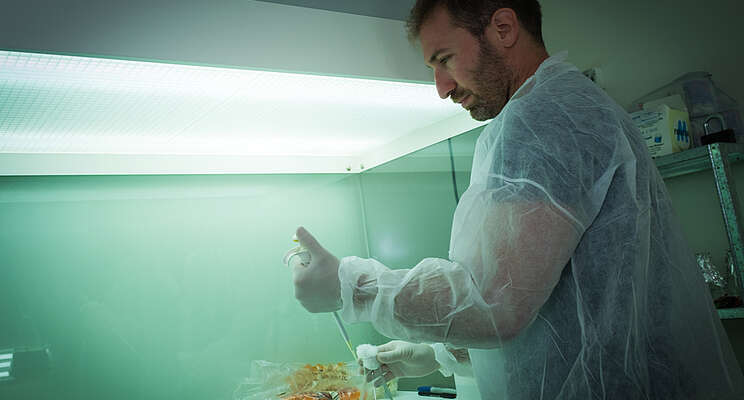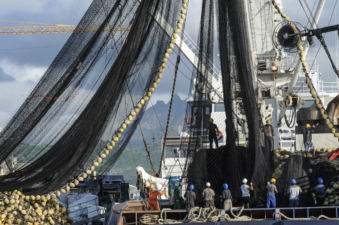The world’s biggest chemicals and food companies, owned by a dozen multinationals, are diving deeper into the protein alternative movement as more people turn to veganism. DuPont, the chemical company that makes teflon, lycra, polyester, and lucite, will now be making artificial salmon, using spirulina, a type of algae. They have partnered with an Israeli company to harvest and isolate the reddish-orange components from the algae to give the taste and texture to the cultivated salmon.
I just finished a green veggie shake made with spirulina this morning. Known for its rich in a range of vitamins and minerals essential for maintaining a healthy immune system, like vitamins E, C, and B6, some research finds that spirulina also boosts the production of white blood cells and antibodies that fight viruses and bacteria in your body.
But fish-in-a-lab from spirulina? Why not just eat it as it is? This is one of the growing problems with the food industry today: making fake meat and fish and marketing them to consumers who might be better off just eating the same vegetable based products in their original form. Read here how the Slow Food movement is rallying against fake meat.
But the news is in, DuPont, now known as IFF-DuPont is joining up with an Israeli foodTech start-up called SimpliiGood to develop the first commercial smoked salmon analog made entirely from a single ingredient: fresh spirulina. The company is growing its spirulina in the Israeli desert under ample sunshine.
Mercury free fish?
The plant-based salmon-like cut is uniquely crafted to take on the appearance, color, texture, and flavor of smoked salmon, reports the companies in a joint press statement, yet without the ocean pollutants that living fish are commonly exposed to. These include compounds such as mercury, fossil fuels, and industrial waste. The final product contains 40% protein.
In the new partnership SimpliiGood provides the raw material and texture and color qualities of fake salmon, while IFF-DuPont contributes the flavor and smells. The product is expected to hit the market by the end of 2023. In 2020, the global sales value of salmon amounted to approximately 15 billion USD.

SimpliiGood specializes in cultivating and harvesting fresh blue-green algae, as well as producing of a range of spirulina-centered food products.. Its current portfolio encompasses a range of meat substitutes, including hamburgers and chicken nuggets, as well as popsicles, ice cream, crackers, and beverages where spirulina serves either as the base ingredient or as nutritional enrichment.
“Our spirulina can act as a complete replacement for animal-based protein or be easily integrated into existing food products as an added-value ingredient, as it has a neutral flavor and maintains its full nutritional value,” says Lior Shalev, CEO and Co-founder of Algaecorem the parent company of SimpliiGood.
Spirulina is heralded as one of the most nutrient-dense plant-based forms of protein on the planet, being a naturally rich source of whole protein, plus antioxidants, chlorophyll, vitamins, (including B12), and minerals, especially iron.

Chaga tea, lion’s mane mushroom, kale, spirulina and fiber powder are all part of a new health food diet fad
The spirulina market is relatively young and is dominated by dried and powdered forms of the ingredient which is easy to use when making shakes, baking breads or sauces. An orange, salmon-like hue has been expressed through identifying and isolating the native beta carotene pigment naturally present in spirulina.
Who else is making lab fish?
Plenty of companies from around the world are looking to print salmon and other kinds of fish to stop over fishing and over consumption of fish in the wild. The Israeli startup Plantish showed a prototype of whole-cut vegan salmon filets earlier this year. The “meat” offers a flakey texture, it’s buttery in the mouth and created to duplicate the sensation of salmon.
One other startup working to reel in the big fake fish is Good Catch Meals which offers an American-made salmon burger. The “salmon” burger is made from six plants: peas, soy, chickpeas, faba beans, lentils, and navy beans. They also offer a vegan tuna and different seafood appetizers and entrées to offer customers a fish substitute.
Hong Kong-based OmniFoods known for its plant-based pork products launched OmniSeafood. They are looking to replace fish with vegan options and products include alternate options to canned tuna, breaded fish, and filets and its first vegan crab muffins launched on the menu of Starbucks Hong Kong. This month, its plant-based fish made it onto the menu at McDonald’s in Hong Kong.
From greenhouse-to-fork?
Like all the hydroponics farms touting “sustainability”, the makers of animal alternative protein are doing the same though there is yet little justification for it, except for animal suffering. Critics of alternative meat companies (links to the NY Times which needs a subscription) say that the extensive process of making these products cannot yet claim to be good for the environment, though it’s a feel-good proposition that wins favor with the public. The term for that is “green-washing”.
I’d rather see a world where people eat real food and real meat products, unprocessed in a lab, including real meat and real fish, products that are trapped, hunted from healthy forests and fish caught from unpolluted seas. We’d rather, as a species, be better informed about consuming animal products and if we choose to eat them, do it much, much less, while focusing on quality over quantity.
We need to focus on reducing our need for ready-made packaged products. Make our own real food, plant our gardens or buy from locals who have made farming a better way of life for them and their community.
Strauss shows the stressors of globalization
Strauss, a food company from Israel, which has heralded the support of alternative protein companies through its investment arm The Kitchen (also supported by the Israeli government using grants from the Office of the Chief Scientist), has invested in Flying Sparks (makes protein from insects), Aleph Farms (meat in a lab), and Wanda Fish, a company that makes alternative fish proteins. Last week Strauss suffered from a massive financial blow after its food products were recalled due to a salmonella outbreak.

Leonardo DiCaprio invests in Israel’s Aleph Farms
It is one of the largest food recalls in Israel’s history and its impact will be global. Friend and fellow environmentalist (and Eco Bible author) Yonathan Neril noted: “There are likely millions of food items included in this recall. Once the products are returned from the stores, Strauss destroys them. This is food waste on a tremendous scale.
“We live in a strange world. In Yemen, 2,000 km southeast of Israel, about 25 million lack enough food, with many experiencing severe malnutrition. Ditto for 25 million Afghanis, a few thousand km to the east.
“Food contamination is a dark underbelly of industrial food production. If modern society produced food on a smaller scale, if would not have to discuss obscene amounts of food when salmonella or e-coli bacteria are food in the production process.
“How many of the 800 million people on this planet would be happy to take the tiny risk of eating these chocolate bars, wafers, cookies, and cakes, in order to experience the satiation of eating a normal amount of calories for one day? Can food recalls involve distributing the food to people facing severe malnutrition, and just include a warning label– there’s a tiny chance that this food is contaminated with salmonella– eat at your own risk?” Neril asks.
Or for now eat from food made by your own hands that don’t come in so much packaging and your risks and expenses will be much less?
In March, Ferrero, the makers of Nutella and other products faced a global recall. The World Health Organization said a salmonella outbreak reported in the UK on March 27 was linked to chocolate produced by the Ferrero Corporate plant in Arlon, Belgium, which has been distributed to at least 113 countries.
A global alert was released by the International Food Safety Authorities Network, initiating a global product recall of Kinder products marketed to young children. So far, a total of 151 genetically related cases suspected to be linked to the consumption of the relevant chocolate products have been reported from 11 countries.
The affected countries are Belgium, France, Germany, Ireland, Luxembourg, the Netherlands, Norway, Spain, Sweden, the UK and the US.
Is the Ferrero contamination linked to Israel where some of Ferrero’s raw materials might have been used? We’ll know more soon, I am sure.
But back to the fake meat, fake fish, fake food: I was excited about Impossible Foods and the ISO Group and the Beyond Burger for a while and I chose to pay 4 times the price of real meat to consume no animal protein but after a dozen or so burgers couldn’t get over the coconut oil flavor that permeates everything — and the hard to digest pea protein that is prone to give digestion problems. In that I mean stomach upset and extreme gas. So don’t eat one before a first date or working at the office.
There is no verdict here. You have to look deeper and decide for yourself. After living in Israel for more than 20 years I can see how real, fresh food goes a long way to satisfy the tastebuds and soul. Let’s ditch all the business models, marketing and greenwashing and just go back back to basics. Regenerative farming anyone? Or on the flipside, our collective climb into technology and food might bring us eventually to the right place, one hundred or one thousand years into the future.
Last thought: a new new study finds that the fishing industry is making the habitats of dolphins unsustainable. An ethical reason to stop eating fish?




